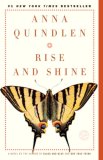Summary | Excerpt | Reading Guide | Reviews | Beyond the Book | Readalikes | Genres & Themes | Author Bio

From time to time some stranger will ask me how I can bear to live in New
York City. Sometimes it happens when I am on vacation, passing the time in a
buffet line filled with the sunburned and the semidrunk. Sometimes it comes up
at a professional conference, drinking coffee in the corner of a hotel meeting
room with a clutch of social workers, most of them wearing the dirndl skirts and
dangling earrings of the socially conscious woman of a certain age. My aunt's
friends will ask, although they live only a half hour north, up the Saw Mill
Parkway, but in a state of bucolic isolation that might as well be Maine.
Even in New York itself I will sometimes hear the question, from the ld men on
the Coney Island boardwalk who knew Irving Lefkowitz when he was a bar mitzvah
boy and who, from their benches on the Brooklyn beach, envision the long and
slender island of Manhattan as an urban Titanic, sinking beneath the weight of
criminals, homosexuals, and atheists, sailing toward certain disaster.
"And you live there why, sweetheart?" one of them once asked me with an
openmouthed squint, his neck thrust forward from the V of a ratty cardigan so
that he looked like a Galápagos tortoise with a wool-Dacron argyle shell.
Sometimes, if I'm tired, I just shrug and say I like it here. Sometimes, if I'm
in a foul mood or have had a bit too much to drink, which often amounts to the
same thing, I will say I live in New York because it is the center of the
universe.
Most of the time I say my sister lives here and I want to be near her, and her
husband, who is like a brother to me, and her son, whom I covertly think of as
at least partly my own. The old men like that answer. They make a humming sound
of approbation and nod their mottled hairless heads. A good girl. A family
person. They peer up at Irving. The next question will be about marriage. We
flee to Nathan's for a hot dog.
I do like it here. It is the center of the universe.
And I do want to be near my sister, as I always have been. We have our rituals.
Every Saturday morning, unless she is covering the Olympics, the Oscars, a
disaster, or an inauguration, my sister and I go running together in the park
and have breakfast either at her apartment or at the Greek diner down the street
from mine. She will tell you she is forced to set a slower pace because I don't
exercise enough. She sees this as evidence of my essential sloth. I see it as
emblematic of our relationship. Our aunt Maureen says that I was a baby so plump
and phlegmatic that the only reason I learned to walk was so I could follow my
older sister. Some of my earliest memories are of wandering down a street of old
Dutch Colonials and long-leafed pines, the backs of a covey of eight-year-old
girls half a block in front of me, the demand from the one at their center
carrying on the breeze: "Bridget! Go home! Go home now! You can't come!"
I'm always a little breathless when I run with Meghan on Saturday mornings. But
I'm accustomed to it now. "Listen and learn," she has said to me since we were
in high school, and I always have.
"How weird is it that we were at the same dinner party last night?" she said one
overcast March morning as we began to trot down the park drive in tandem, and I
tried not to hear that long-ago plaint in her comment: Go home, Bridget! You
can't come. It had indeed been strange to enter a vast living room, beige velvet
and Impressionist paintings, and see her at one end nursing a glass of sparkling
water. Our hostess had attempted to introduce us, since no one ever suspected
Meghan and I were related. Then she had disappeared to hand off the bunch of
anemones bound with ribbons I had given her at the door.
"God, flowers, Bridge?" my sister said, running around a stroller-size class of
new mothers trying to trim their baby bodies. "I couldn't believe you brought
flowers to a dinner party. That's the worst. With everything else you have to do
when people are showing up, you have to stop to find a vase and fill a vase and
cut the stems and then find a place for them and if they're blue, Jesus, I never
know where to put them in our apartment, and then-"
Excerpted from Rise and Shine by Anna Quindlen Copyright © 2006 by Anna Quindlen. Excerpted by permission of Random House, a division of Random House, Inc. All rights reserved. No part of this excerpt may be reproduced or reprinted without permission in writing from the publisher.
Your guide toexceptional books
BookBrowse seeks out and recommends the best in contemporary fiction and nonfiction—books that not only engage and entertain but also deepen our understanding of ourselves and the world around us.